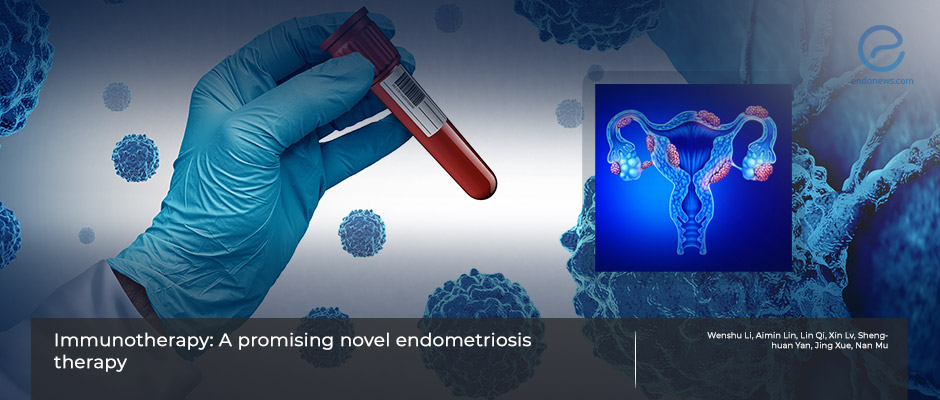Harnessing the Power of the Immune System: The Potential of Immunotherapy for Treating Endometriosis
Aug 1, 2023
Immune therapy to overcome limitations of current therapeutic options
Key Points
Highlights:
- The article reviews preclinical and clinical studies investigating the use of immunotherapy for endometriosis and provides important insights for clinicians interested in exploring new treatment options for endometriosis.
Importance:
- Treatment options are limited and Immunotherapy has emerged as a promising alternative treatment for endometriosis.
What's done here:
- This is a review article explains how immunotherapy harnesses the body's immune system to target and eliminate abnormal cells.
- The article reviews preclinical and clinical studies investigating the use of immunotherapy for endometriosis.
- The article discusses various immunotherapy approaches, including immune cell inhibitors or stabilizers, cytokine modulators, and new strategies.
Key Results:
- Immunotherapy has the potential to be a safe and effective treatment for endometriosis.
- Immune cell inhibitors or stabilizers, cytokine modulators, and new strategies have shown promise in preclinical and clinical studies.
- Further research is needed to fully explore the therapeutic potential of immunotherapy for endometriosis.
Limitations:
- There is still a need to identify "specific endometriosis-associated antigens" that can be targeted by the immune system.
- There is a risk of "autoimmune reactions", which can result from the immune system attacking healthy tissue in addition to endometriosis.
Lay Summary
The review article by Wenshu Li et al. discusses the potential of immunotherapy as a novel treatment for endometriosis and the potential to overcome possible side effects and recurrence rates related to conventional therapies. The article explains how immunotherapy, which harnesses the body's immune system to target and eliminate abnormal cells, has emerged as a promising alternative treatment for endometriosis.
The article reviews the preclinical and clinical studies that have investigated the use of immunotherapy for endometriosis, including immune cell inhibitors or stabilizers that may be effective in the treatment of endometriosis. Drugs that act as mast cell stabilizers, such as palmitoyl ethanolamide and levonorgestrel-releasing intrauterine system, mast cell stabilizers, and histamine 1 receptor antagonist (such as zafirlukast, sodium cromoglycate, Loratadine, Etanercept, Recombinant human TNF binding protein I), act by inhibiting the progression of endometriosis, clinically have been explained.
Also, immune cytokine modulators containing Interleukin-10 which has anti-inflammatory effects and can inhibit the growth of endometriotic lesions, Interleukin-12 and Interleukin-18, which can enhance the cytotoxicity of NK cells and T cells against endometriotic cells, Interleukin-1 receptor antagonist, which can inhibit the production of pro-inflammatory cytokines, TNF-α inhibitors involved in the regulation of immune cells and can promote the growth of endometriotic lesions were described. New strategies including Interferon, which has antiviral and immunomodulatory effects and can inhibit the growth of endometriotic lesions have also been debated.
Adding to all Danazol, complement system inhibitors, COX-2 inhibitors, Statins, Mesenchymal stem cells, Vitamin D, and Bacillus Calmette-Guérin have also been presented to have immunomodulatory effects and may be effective in the treatment.
Overall, the article concludes that immunotherapy has the potential to be a safe and effective treatment for endometriosis and that further research is needed to fully explore its therapeutic potential.
The article provides important insights for clinicians who are interested in exploring new treatment options for endometriosis and highlights the potential of immunotherapy as a promising area of research in this field.
Research Source: https://pubmed.ncbi.nlm.nih.gov/37138868/
immunology endometriosis IL-10 interleukin NK cell cytokine interferon. complement immunomodulatory

